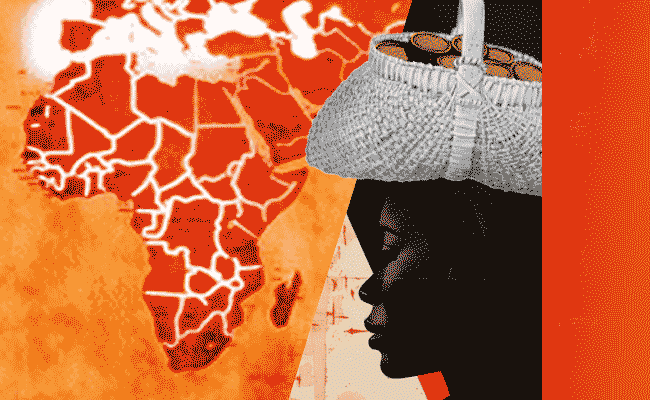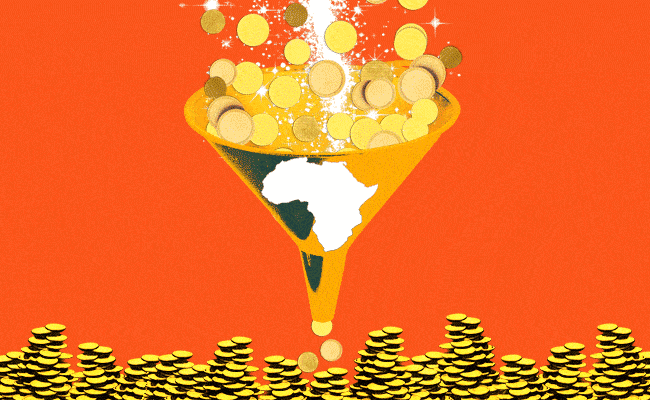Africa, as cartographers love to remind us when they’re feeling expansive, could swallow China, India and America whole, and still have enough room left over for a decent scattering of the Balkans.
It is a continent brimming with treasures the rest of the world cannot stop coveting – gold and platinum for the old world’s wealth, chrome and copper for the new world’s toys, from electric vehicles to the hardware that keeps AI pretending it knows what it’s doing.
Yet the most profound shift in Africa over the past two decades has not been in its mines or markets, but in the quiet, relentless revolution in how its people move, store, and imagine money.
Once upon a time, finance in Africa meant a branch – a dusty one, if you were unlucky – and paperwork in triplicate. Then, in 2007, Kenya’s M-Pesa landed, a service born not in the fevered imagination of a venture capitalist in Sand Hill Road, but as a development tool for British aid bureaucrats trying to get loans to smallholder farmers. What it became was something entirely different: a lifeline. Suddenly, granny in the village who had never seen the inside of a bank could receive cash from her Joburg-based nephew with nothing more than a basic Nokia handset and the patience to navigate a few USSD menus.
This was financial inclusion without the PR campaign – innovation by necessity. And like all such revolutions, it ran into its own constraints. M-Pesa and its mobile money cousins flourished domestically, but they were walled gardens. Your Safaricom wallet didn’t talk to Airtel’s, and neither particularly wanted to make nice with the banks. Cross-border payments? For the most part, forget it. If your cousin was in Uganda and you in Tanzania, you were back to the old rituals of remittance agents, cash couriers, and prayer.
Enter the digital payments platform: the plumbing no-one sees but without which nothing works. Interswitch, Flutterwave, Cellulant, Onafriq – the names don’t yet have the global cachet of a PayPal or Stripe, but in Africa they are doing something arguably more complex: stitching together hundreds of mobile wallets, banks and card systems, many of which have only recently emerged from their analogue adolescence. These platforms are not about moving cash in bags; they are about sending value as code, leaping borders without passports.
A $1.5-trillion economy
The opportunity is vast. The World Bank reckons $100bn in remittances flowed into Africa in 2023 – a sum equal to 6% of the continent’s GDP – and Mastercard projects the digital payments economy will hit $1.5-trillion by 2030.
You don’t have to be an economist to know that’s an awfully large pie, and fintechs are slicing it with gusto.
Take Onafriq – formerly MFS Africa – founded in Joburg in 2009 by Dare Okoudjou, once MTN’s mobile money strategist. From a three-person outfit, it has grown into a 700-strong network operator for money itself, linking more than 500-million accounts across 43 African countries. The pitch is not subtle: access everywhere, for everyone, at a price that undercuts the old banking aristocracy.
Flutterwave, launched in Nigeria in 2016 and, now worth about $3bn on paper, offers payments infrastructure in more than 30 African countries, as well as the US and UK. Among its more visible gigs is running Uber Cash in much of Sub-Saharan Africa – proof, if any were needed, that the gig economy also runs on digital rails.
Cellulant, meanwhile, began in Kenya in 2004 flogging ringtones and pop songs before discovering that facilitating collections, payouts and cross-border payments was a more reliable tune.
Even the banks themselves are getting in on the game. TymeBank, South Africa’s digital-first upstart, reached profitability in 2023 and unicorn status a year later, fuelled by a $250m infusion from Brazil’s Nubank. In Nigeria, Kuda is chasing the same dream, offering credit and deposits at zero fees – a statement as much as a business model.
Eight of Africa’s nine unicorns are fintechs. That’s not a coincidence; it’s a signal. The African Continental Free Trade Area, still in its adolescence, needs exactly this kind of payments infrastructure if it is to become more than a slogan. The easier it is to move money across borders, the easier it is to move goods, services and – dare we say – prosperity.
None of this is without risk. Regulators, often belated to the party, will eventually notice the volume of money flowing through pipes they didn’t lay. Political shocks can freeze the most elegant transaction mid-flight. And the very necessity that drove these innovations – the patchy, exclusionary state of traditional finance – is a reminder that the boom is as much a workaround as a triumph.
But for now, Africa’s fintech pioneers are doing what the continent has always done best: taking what the world throws at it, reshaping it in its own image, and sending it back – faster, cheaper and just a little smarter.
Top image: Rawpixel/Currency collage.
Sign up to Currency’s weekly newsletters to receive your own bulletin of weekday news and weekend treats. Register here.












